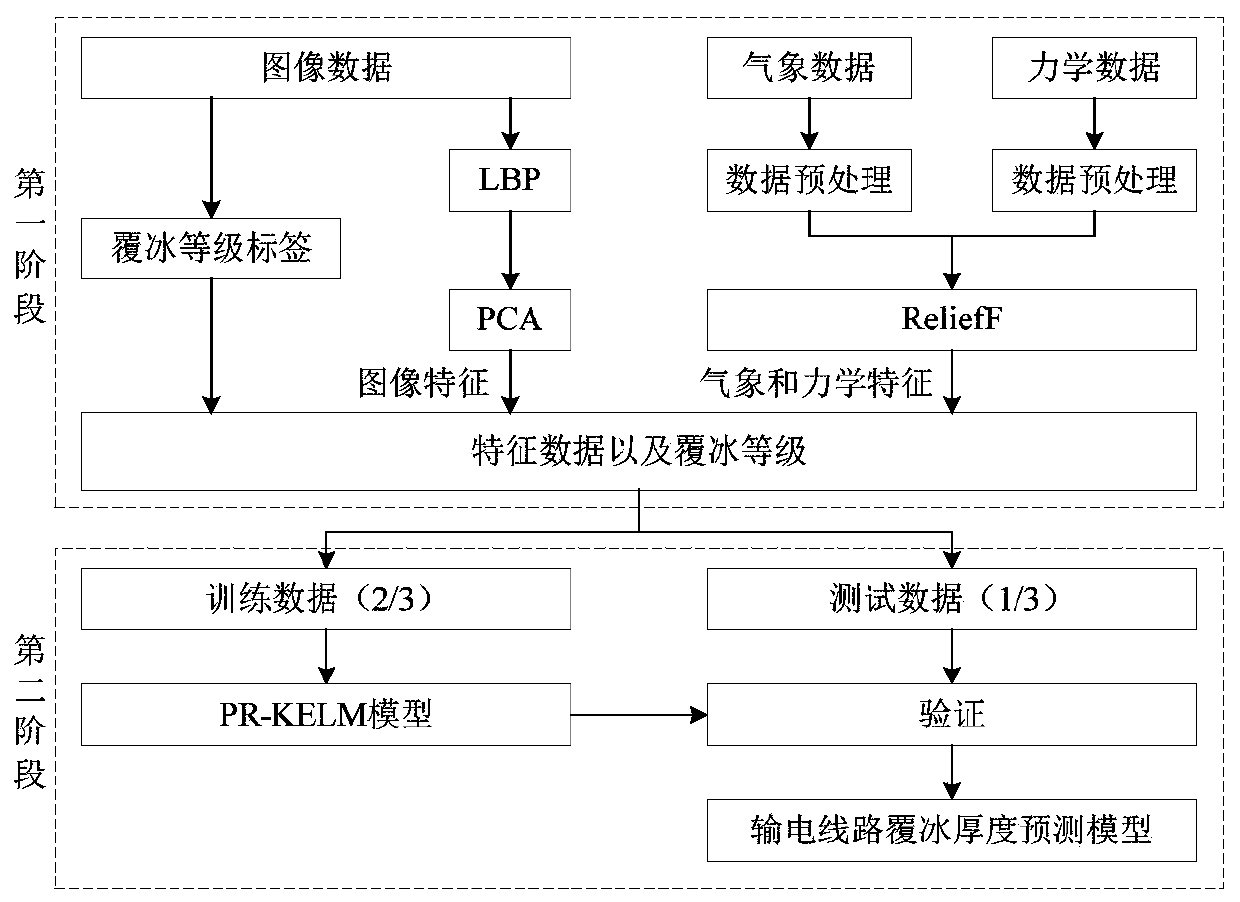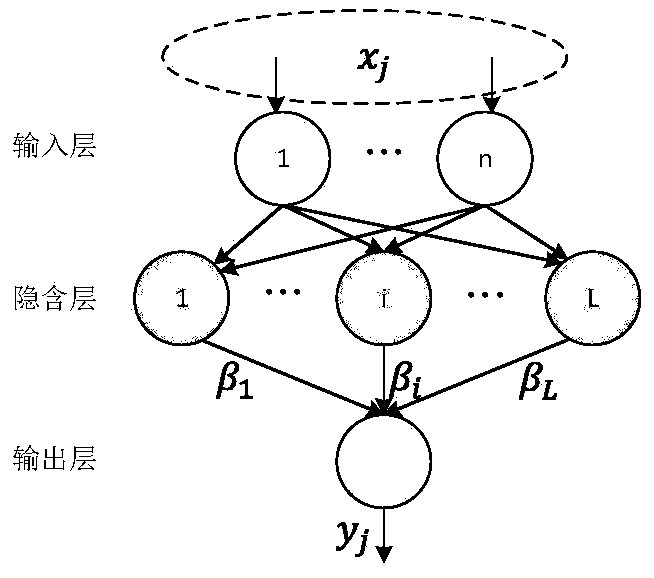Modeling method for power transmission line icing thickness prediction model based on PR-KELM
A technology of ice coating thickness and prediction model, which is applied in character and pattern recognition, instrument, calculation, etc., can solve the problems of not considering image data extraction characteristics, low accuracy of prediction model, low model usage level and scale, etc. The effect of improving accuracy
- Summary
- Abstract
- Description
- Claims
- Application Information
AI Technical Summary
Problems solved by technology
Method used
Image
Examples
Embodiment Construction
[0039] In order to make the purpose, technical solutions and advantages of the present invention clearer, the following will further describe the embodiments of the present invention in conjunction with the accompanying drawings.
[0040] Please refer to figure 1 , the embodiment of the present invention provides a PR-KELM-based modeling method of the transmission line ice thickness prediction model, including the first stage: that is, feature extraction of the original data; also includes the second stage: that is, using the first Based on the features extracted in this stage, an extreme learning machine is used to establish a prediction model for the ice thickness of transmission lines.
[0041] The original data comes from a data set obtained by monitoring the terminal of the online monitoring system of the power grid company for a period of time, and the data set includes basic information data, image data, meteorological data and mechanical data, wherein the basic informa...
PUM
 Login to View More
Login to View More Abstract
Description
Claims
Application Information
 Login to View More
Login to View More - R&D
- Intellectual Property
- Life Sciences
- Materials
- Tech Scout
- Unparalleled Data Quality
- Higher Quality Content
- 60% Fewer Hallucinations
Browse by: Latest US Patents, China's latest patents, Technical Efficacy Thesaurus, Application Domain, Technology Topic, Popular Technical Reports.
© 2025 PatSnap. All rights reserved.Legal|Privacy policy|Modern Slavery Act Transparency Statement|Sitemap|About US| Contact US: help@patsnap.com



